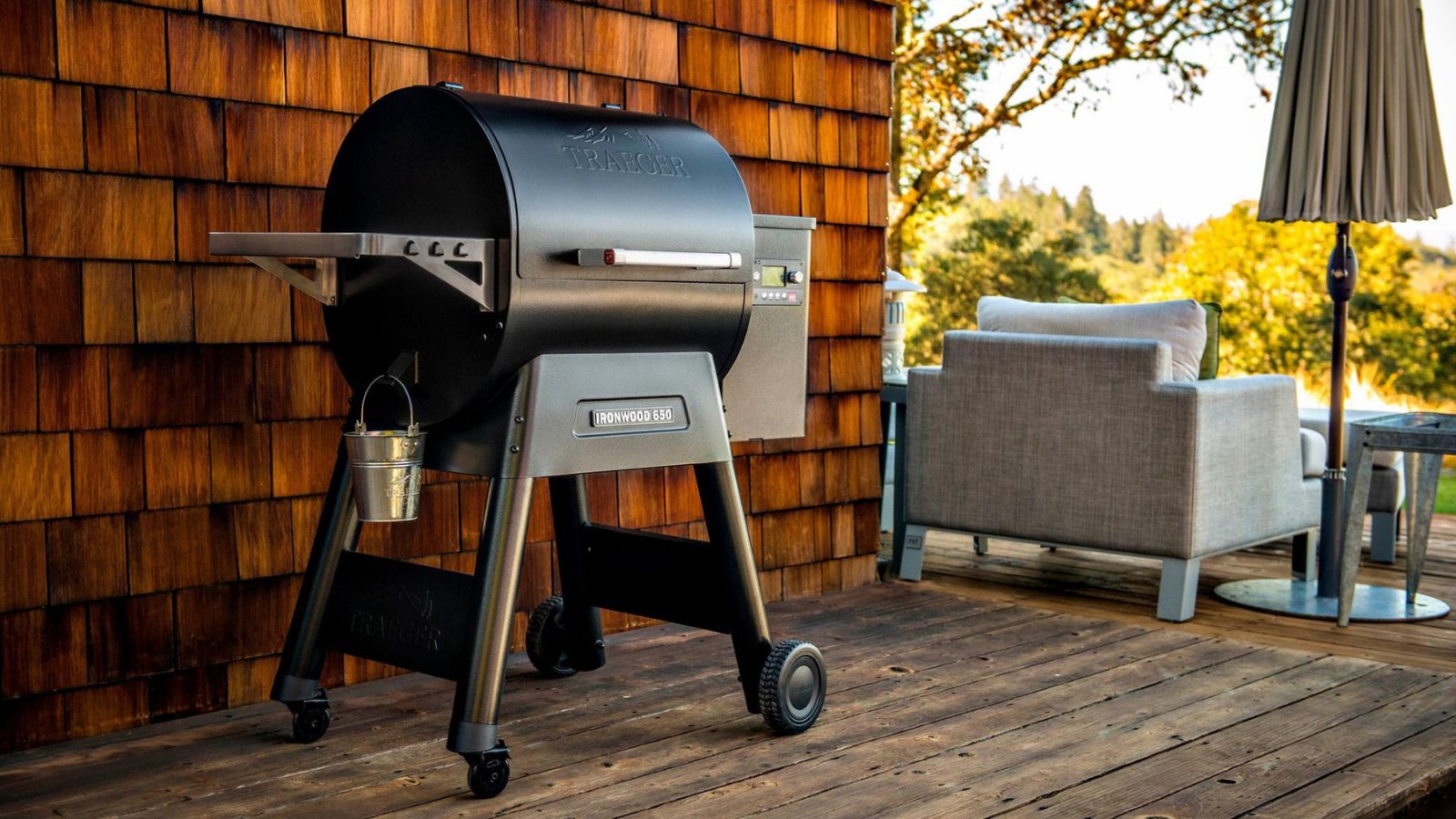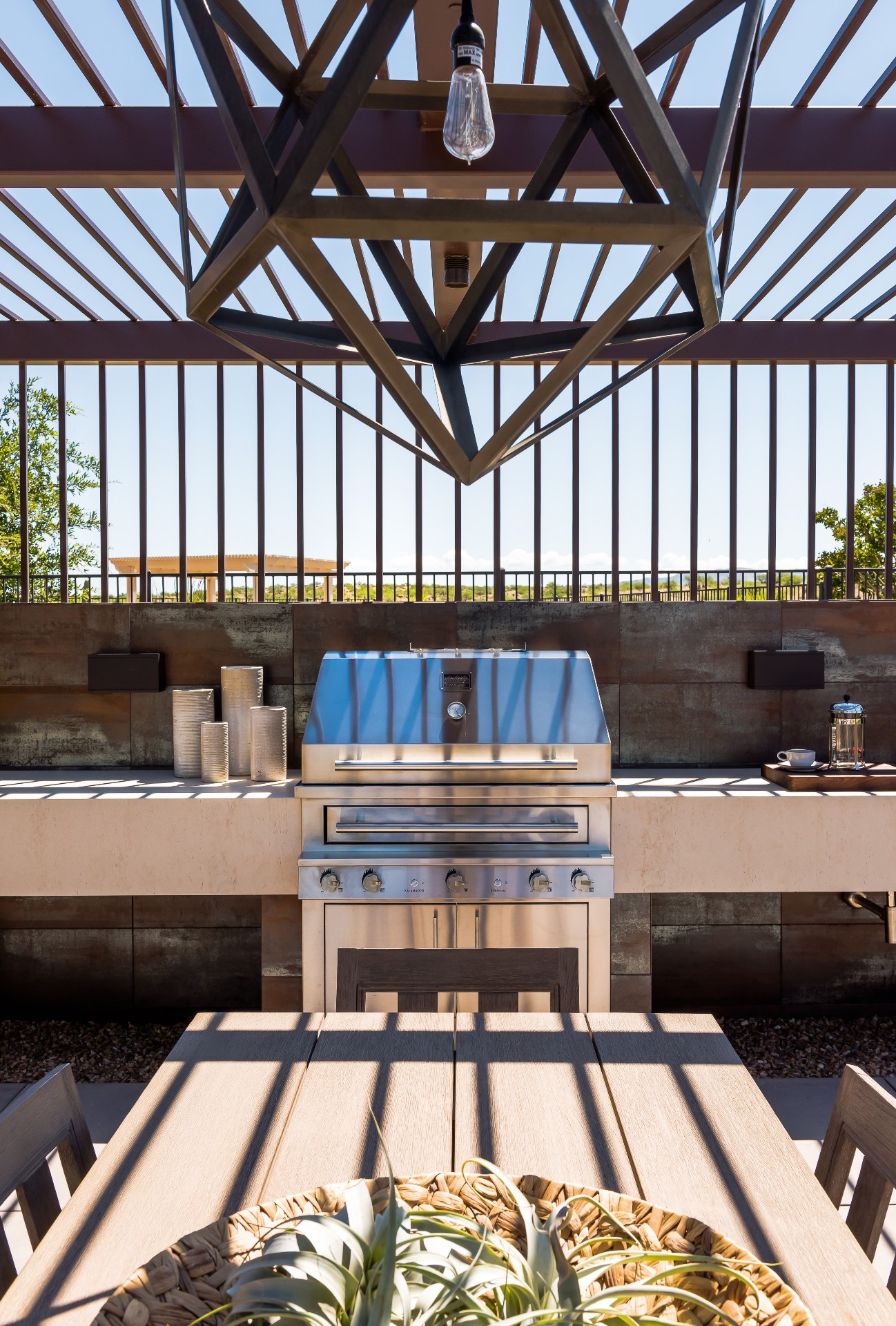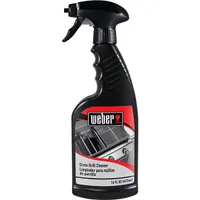The best way to prep a grill after winter – 5 steps for a sizzling start to summer
Food isn’t the only thing to prep before a barbeque, here is how to prepare your grill for the summer months


As soon as the sun comes out, so do the grills. But it is not as simple as sliding it out of the shed and lighting the coals ready for some burger patties.
Even if you have covered up your best grill securely over winter, it will still need some good preparation to make it ready for frequent summer use.
Here, professional chefs and grill experts have shared their top tips for preparing a grill for summer, with cleaning and oiling tips for great tasting – and safe – summer cookouts.
How to prep a BBQ for summer
‘When you take a grill out of winter storage it's not uncommon to notice that there is some dust, rust, and even rodent faeces all over,’ warns Joonas Jokiniemi, grill expert and Grill Smoke Love. ‘I recommend spending some time taking the grill apart to check all of the safety features, and to clean it thoroughly so it will be ready for the summer.’

Joonas has been cooking barbeque for over 30 years, having first assisted his family with smoking when he lived in Finland as a child and picking up the American barbecue culture after moving to California. He has since started his blog to help teach others about cooking great barbeque and maintaining their equipment year-round using his extensive hands-on knowledge.

1. Deep clean the grill grates
Before any grill use it makes sense to clean grill grates, otherwise, the grates could be unhygienic and compromise on flavor. To do this, Jakob Miller, grills expert and founder of Barbecue Pals suggests starting by giving the grates a thorough scrubbing using a wire brush or grill brush to remove any debris or leftover residue.
You can also use aluminum foil to clean your grill grates without a brush, balling it up into a tight ball and using a cleaning paste to work away at tough build-up. Aluminum foil can also get rid of rust, making it ideal for polishing up small areas of discoloration.
‘For tougher stains, you can create a paste of baking soda and water, apply it to the grates, and let it sit for a while, before scrubbing to make it a little easier on your arms,’ adds Jakob.
Design expertise in your inbox – from inspiring decorating ideas and beautiful celebrity homes to practical gardening advice and shopping round-ups.
2. Address the inside before replacing the grates
Cleaning a grill shouldn’t stop at the grates. The interior surfaces should be cleaned and disinfected too to prepare for cooking. This involves removing any remnants of old fuel that remains if you have a charcoal grill, checking inside the grill and scraping and brushing away any grime you find on the lid and sides.
Grill expert Joonas Jokiniemi suggests using a cleaning solution like the Weber Grate Grill Cleaner, available at Walmart, for cleaning grease and burnt food from all internal parts of the grill.
Weber Grate Grill Cleaner | $17.98 at Walmart
This grill cleaner is recommended by the experts, and is one of the best tough cleaners for the inside of old grills that have seen years of abuse and summer cookouts.
3. Don’t neglect the exterior
Although the exterior isn't used for cooking, it is still important to have your grill looking its best and prevent dirt from transferring to the inside when you open or close it.
To do this, Joonas Jokiniemi says to use a damp cloth to wipe the exterior of the grill so it will be clean and shiny. ‘For tough grime, you can use some diluted liquid detergent, such as Dawn (from Walmart) to help polish it,’ he adds, ‘buffing it with a dry clean towel afterward for a proper shine and to prevent water marks.’
4. Check for any signs of damage, or general wear
Perhaps the most important part of preparing a grill after winter is to check over the components for any signs of damage.
‘Like a car or a bike, start with a simple inspection. Inspect the gas lines or propane tank for any signs of damage or wear on gas grills. Look for cracks, leaks, or loose connections. Check the burners, igniters, and other safety features to ensure they're working properly too,’ advises Gabriel Llaurado, co-founder of Meat N’ Bone and grill master. ‘Make sure the lid, handles, and wheels are secure and functioning well also. They may not be a safety feature per say, but it is important for everyday use.
‘If you have a charcoal grill, inspect the charcoal grate, ash catcher, and vents for any blockages or damage instead,’ Gabriel continues.
It is important to know when to replace a grill, and what damage can be considered dangerous. Gas grill safety in particular is paramount, and if you think you may have a leak, it is important to ‘perform a small leak test by applying a mixture of soapy water to the gas connections,’ continues Gabriel. ‘If you see bubbles forming, there may be a gas leak, and you should have it repaired before use. Turn the gas supply off immediately, and disconnect it safely following the manufacturer's instructions.’
5. Warm the grill up slowly before first use and season
Once the cleaning and general maintenance are out of the way, it is time to focus on prepping the grill for the food itself. Just as you season cast iron, it is important to season a griddle grill for the best-tasting food and to prevent it from sticking and burning.
Former competitive BBQer and culinary director at Smoque Steak, Dylan Lipe, suggests heating the grill up slowly for its first use, using a small flame to gradually rewarm the metal after a long winter in the cold – ‘it should be warm but not too hot to touch,’ he explains.
‘Then, with a paper towel or disposable towel wipe down the inside of the lid, cooking chamber walls, and grates with mineral oil, continue with the fire until the oil has dried completely,’ he says. ‘You are now ready for a successful grilling or smoking season!’
FAQs
Should you cover a grill in the summer?
When not in use, you should always cover your grill (even in summer). This can help prevent dust, dirt, sand, and pollen from settling on cooking components and needing a deep clean before you cook. Closing the lid should suffice between regular uses, but a cover is good if you only open the grill up on special occasions.
Always wipe down any surface that food will come into direct contact with before cooking – even when it has been covered.
Do you need to clean a grill after every use?
You should clean your grill after every use to prevent the growth of bacteria and mold that could pose a health hazard when cooking again. Cleaning after every use and allowing it to dry will also help to prevent rust from developing that could render the grill unusable, or require much more thorough cleaning down the line.
Once you have fully prepped your grill after winter, it is fine to cook right away. The most important step to complete is the safety check, making sure to not cut corners – even if the exterior of the piping or wiring looks okay. While you don’t need to overspend on grills generally, you cannot put a price on safety.

Chiana has been at Homes & Gardens for two years and is our resident 'queen' of non-toxic living. She spends most of her time producing content for the Solved section of the website, helping readers get the most out of their homes through clever decluttering, cleaning, and tidying tips. She was named one of Fixr's top home improvement journalists in 2024.
